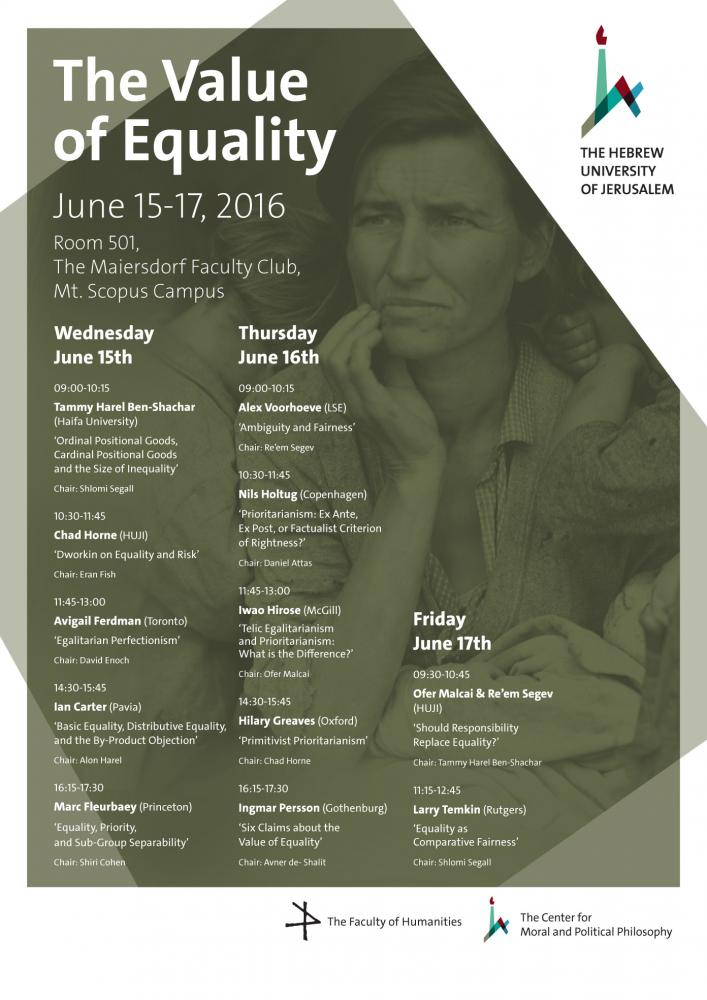Elena Ziliotti

I am a PhD candidate under the King’s College London - National University Singapore Joint Degree Programme. I hold two Master degrees, one in analytic philosophy from the University of Barcelona and one in philosophy from the University of Parma (Italy). As an undergraduate, I studied philosophy at the University of Parma and I was awarded with an Erasmus scholarship to study at the Radboud University in Nijmegen (Netherlands).
My research focuses on contemporary democratic theory. I am particularly interested in the value of democracy, justification for meritocratic practices and systemic approaches to democracy. My dissertation analyses the relation between democracy and meritocracy. In particular, by examining contemporary works of both Western and Eastern political philosophies, the study investigates the space of meritocratic measures and practices in a democratic system.
My interest in the value of equality originated from the correlation between equality and democratic theories. During my time at CMPP, I will investigate different ways in which a democratic system can express equality. By assessing the main works on political egalitarianism, the research will disentangle the intricate relation between the value of equality and democracy.
David O’Brien

I am a PhD candidate in the philosophy department at the University of Wisconsin, Madison. In my dissertation, I defend telic egalitarianism—the view that it is, in itself, bad if there is distributive inequality. This view requires defense because it faces an objection: namely, that either inequality is bad only in virtue of some further, distinct normative consideration (and so is not in itself bad) or it is not (and so there is no reason to think that inequality is itself bad). I argue that this dilemma can be avoided by developing a familiar egalitarian thought: that there is a connection between inequality and unfairness. But avoiding the dilemma by exploiting this connection requires completing two further tasks, which I also take up in my dissertation: (a) developing an account of (distributive) unfairness and (b) explaining the nature of the connection between inequality and unfairness. I also hope to show that developing telic egalitarianism in this way gives egalitarians resources to respond to other objections to their view (e.g., objections concerning the scope of equality and the objection that the kind of equality that matters is a social relation, not a distributive fact).
Nethanel Lipshitz

I am a PhD candidate in Philosophy at The University of Chicago.
My research focuses on basic equality and the problem of the basis of equality: What does it mean to say that all human beings are each other’s moral equals? What moral and political prescriptions follow from such a claim? And what, if anything, can justify this idea? In my dissertation, I argue that the moral equality of human beings can be defended even if empirically there is no morally significant property that all human beings equally have.
Julia Mosquera

I am a PhD candidate in Philosophy at the University of Reading, UK. Before this, I did my Master’s Degree in Analytic Philosophy at Bacerlona/ Pompeu Fabra University (Spain).
My research focuses on disability and equality. My thesis explores different ways in which society may reduce the inequality between disabled and non-disabled individuals. The reduction in the incidence of disabilities can be proposed as a way to achieve equality between disabled and non-disabled individuals. I analyse what would be the effects for equality of reducing the number of individuals who are born with disabilities.
These are some of the questions regarding equality that I am interested in: personal/impersonal value of equality, how to measure inequality, equality and population change, equality and priority.
Chad Lee-Stronach

I am completing my PhD in philosophy at the Australian National University. My work combines moral theory with decision theory and formal epistemology. In particular, I focus on how absolute moral concepts, like ‘permissibility’, apply to you when you are uncertain about the facts of your situation. The puzzle of applying absolute moral concepts in such cases is that uncertainty comes in degrees, but absolute moral concepts do not. You can be 90% confident that your chosen action is permissible, but this fact doesn't make your action 90% permissible; it will either be permissible or it won’t be. In my thesis, I show that particular tools in decision theory and formal epistemology give us acceptable ways of applying absolute moral concepts in cases of uncertainty. As it happens, I believe that these tools also help us to make progress in various debates about the value of equality and the dictates of egalitarianism.
Rona Dinur

I'm a PhD student in the philosophy department of the Hebrew University. I hold an LL.M from Harvard Law School, and LL.B/B.A (in Law and Political Science) from the Hebrew University (summa cum laude). In between my bachelor's degree and LL.M studies I served as a law clerk in the chambers of Justice Asher Grunis, who was then the Chief Justice of the Israeli Supreme Court.
The goal of my dissertation project is to explore and formulate the ethical problem which underlies a specific kind of discrimination, namely discrimination that is perpetuated against people specifically because of their group identity. While the notion of discrimination is commonly associated with problems of unjust distribution, or with the concept of equality in its specific interpretation as a distributive ideal, the ethical problem which underlies the type of cases that I plan to examine seems to be related to inegalitarian relations between people. Therefore, in lieu of a distribution-based account, I attempt to utilize the emerging literature which discusses relational equality in order to understand the ethical problem which underlies such cases. I argue that the relational equality -associated ethical problem which is present in such cases is more adequately understood using a virtue ethics framework (rather than a deontological one), and specifically one that focuses on the agent's cognitive-epistemic state.










